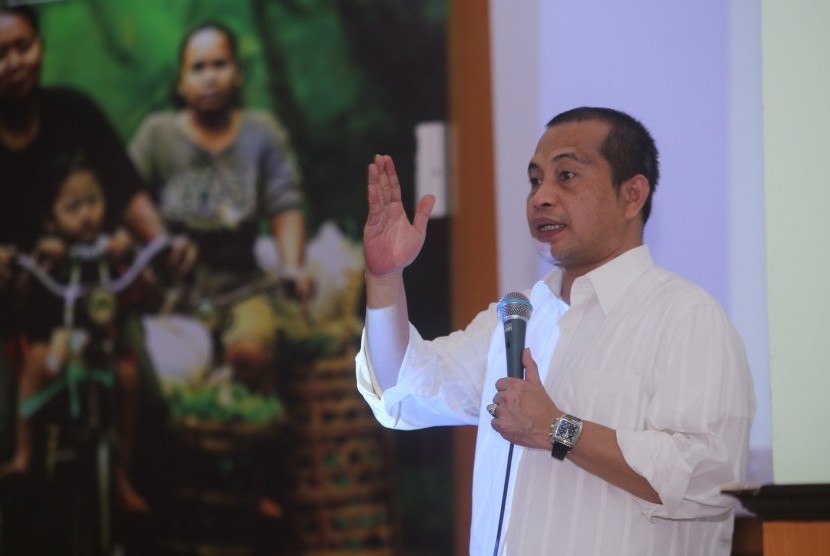REPUBLIKA.CO.ID, JAKARTA -- Islamic boarding schools (Pesantren) can help the government build self-reliant villages, Minister for Villages, Disadvantaged Regions and Transmigration Marwan Jafar stated.
"Pesantren have a greater role in the government's efforts to develop self-reliant villages. The development of self-reliant villages is one of the main priorities of the ministry of villages, disadvantaged regions and transmigration," the minister noted here on Monday (9/3).
The role of Pesantren in the development of villages could not be taken lightly.
"Since the country gained independence, Pesantren have played key roles in the process of the state and national development," he affirmed.
Pesantren, which are mostly located in the villages, can serve as training centers for preparing qualified human resources.
"Since the beginning, Pesantren have always conducted trainings for human resources and implemented development programs for their surrounding areas," the minister revealed.
The ministry of villages, disadvantaged regions and transmigration will conduct a study on Pesantren, which have specialized programs and can be used as centers for training and developing human resources.
"We will study several Pesantren, which have special programs of excellence. We will use them as training centers for the development of self-reliant villages in the surrounding regions," Minister Jafar noted.
He cited the example of Al-Ittifaq Pesantren located in a remote area at the foot of Mount Patuha in Bandung, West Java. The Pesantren also imparts agribusiness education to its students.
"So, the students learn not only about religious subjects but also matters on how to practice modern entrepreneurship in villages without sidelining the local wisdom," the minister pointed out.
Under the direction of Fuad Affandi, the Al-Ittifaq is now supplying agricultural products to the traditional markets and supermarkets in Bandung and Jakarta, he said.
With about 700 students and five groups of farmers in the districts of Rancabali and Ciwidey, the Al-Ittifaq cooperative has now transformed itself into a self-reliant religious institution.
Last month, the minister has sought an additional budget worth Rp10.6 trillion for the implementation of his ministry's programs in 2015.
"We have asked for an additional Rp10.6 trillion. The previous budget was set at Rp6 trillion. So, the budget, if approved, will amount to Rp16.6 trillion in 2015," Marwan noted after a hearing with Commission II on financial affairs of the House of Representatives (DPR).
The funds were needed to develop the disadvantaged villages and to empower the people in the villages, Jafar remarked.
Currently, 33 thousand villages in 122 districts are categorized as disadvantaged villages.
The six criteria to determine whether a village is disadvantaged are inadequate human resources, weak infrastructure, small fiscal capacity, weak accessibility, small number of families receiving electricity, and low budget of the district where the village is located.
"We will cooperate with the regional governments to develop the disadvantaged villages," he added.
In April, each village will receive a village fund amounting to Rp240-Rp270 million.
"The amount of funds a village will receive will depend on the level of its poverty and infrastructure," he noted.
The funds are expected to be used for the development of village-owned enterprises (BUMDes), which aim to improve the prosperity of the villagers.
"Villages will also get funds from the Regional Budget (APBD). At least, every village will get Rp750 million per annum," he stated.



